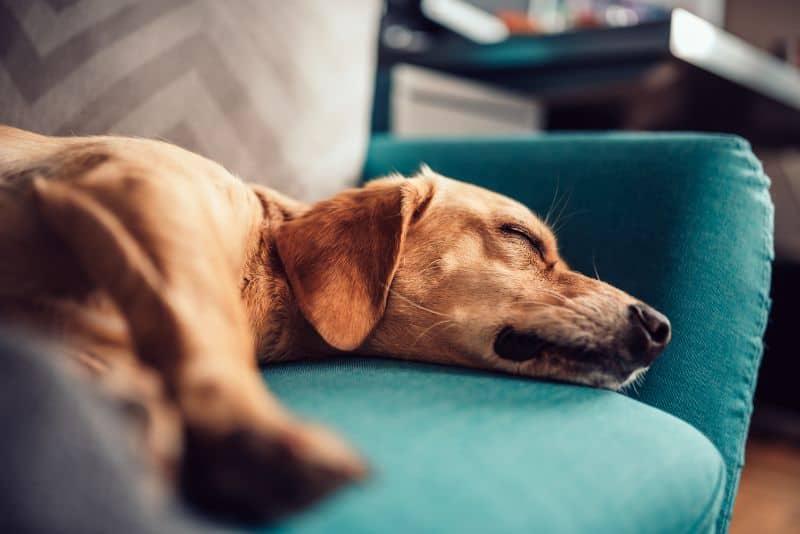Do You Have A Lethargic Dog? Here’s What You Can Do About it

If you’ve been a pet owner for any length of time, you’ve likely noticed how often your pet sleeps. Healthy, adult dogs tend to sleep an average of 12-14 hours per day, and possibly even more if they are very active or have reached their senior years.
Although your dog may be commonly found asleep, but having a lethargic dog is no fun, and may be a sign of a deeper health issue.
Lethargic Dog, Or Just Lazy?
Some of the more common reasons for lethargy in canines includes:
- Age – Older dogs and puppies need more sleep than adult dogs. Although puppies need about 15-20 hours of sleep for optimal growth and development, they should be energetic and playful during their waking hours. Contact us right away if your puppy is lethargic while awake.
- Excess weight – Extra weight can lead to lethargy and exercise intolerance in dogs. Fortunately, this is an easy fix! Talk with your veterinarian about a change in diet, portion control, and starting an exercise program for your pet.
- Illness – Being sick can make both pets and people lethargic. Bring your pet in to see us if the lethargy is accompanied by vomiting, diarrhea, loss of appetite, or other changes in behavior.
- Pain – Osteoarthritis, cancer, or dental related pain can make a dog unwilling or unable to move around very much.
- Poisoning – So many substances we have lying around the home and garage are potential pet toxins, such as antifreeze, rodenticides, chocolate, the alternative sweetener Xylitol (often found in sugar free gum and other foods). If you notice your dog suddenly seems lethargic after they’ve been outdoors, been found rummaging in the trash or in a purse or coat pocket, or after you’ve been cooking, bring them in to the veterinarian immediately.
- Medication – Lethargy can occur when a pet reacts poorly to a medication. Contact your veterinarian if you notice this change after starting your pet on a new medication.
- Depression/anxiety – Abrupt changes in routine, including the introduction or departure of people or pets from the home, can cause a dog to feel anxious, withdrawn, or even depressed. Spend some extra one-on-one time with your pup, and make sure they are getting plenty of exercise.
Helping Your Pet
Pay attention to your dog’s daily habits and activities. If you notice they are suddenly sleeping more often or unwilling to get up to play or go for a walk, please don’t hesitate to contact us to schedule an appointment for your pet. Keep your dog comfortable and allow them time to rest until they can be seen by a veterinarian. If they have a fever or appear to be in pain after business hours, take them to one of the emergency veterinary hospitals listed on our website.
Please don’t hesitate to contact your team at Rocklin Ranch Veterinary Hospital with your questions and concerns about your pet. We are here for you!

